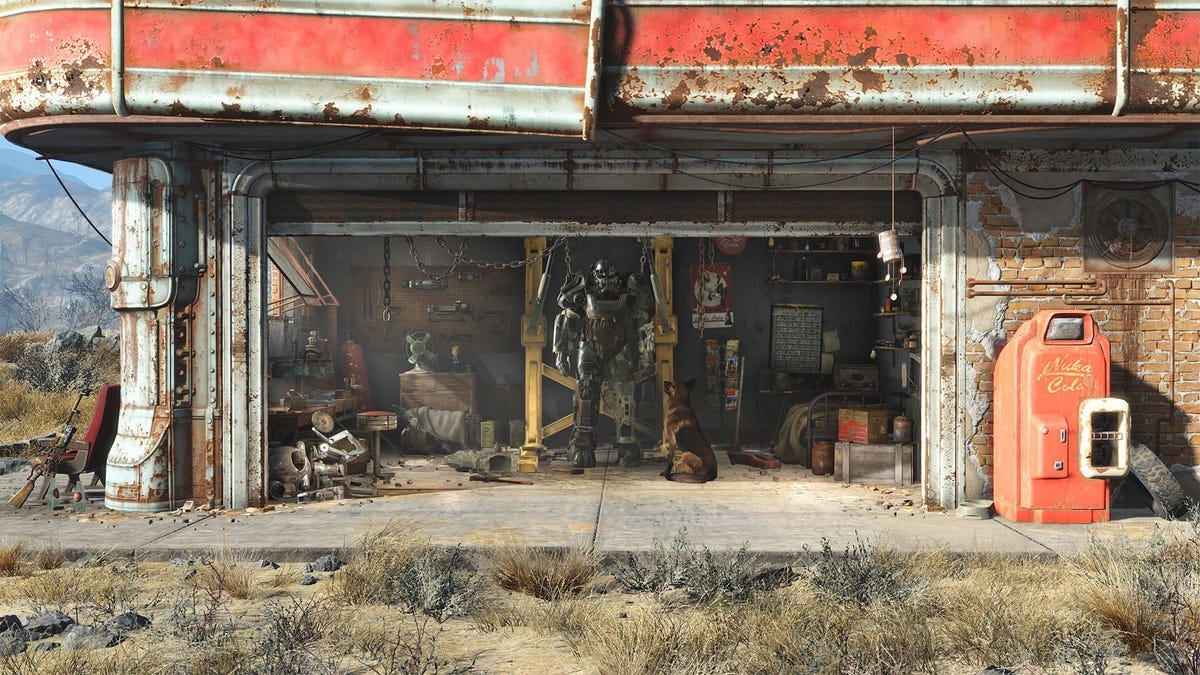Earlier this week, Xbox announced that it would be shuttering several studios it had attained as part of its $7.5 billion purchase of Bethesda, including Arkane Austin, Tango Gameworks, Alpha Dog Games, and Roundhouse Studios, the last of which is being absorbed into another team. Collectively, the studios’ produced games like Dishonored, Prey, Redfall, Mighty Doom, Hi-Fi Rush, and more. These studios, and some of the more innovative titles that they developed, seemed at one point to be the future of Xbox’s floundering brand. After a downturn in many of Xbox’s large key franchises due to mismanagement, the shifting priorities of its audience, and the Xbox’s dwindling image across the world, titles like the ones these teams were developing seemed like the start of a promising new era for Xbox, one that might be marked by more creative, sustainably made games that weren’t designed to bleed its audience dry.
As part of its messaging during the closures, Microsoft Gaming’s Head of Xbox Studios Matt Booty told the affected teams, “These changes are grounded in prioritizing high-impact titles and further investing in Bethesda’s portfolio of blockbuster games.” The deployment of the term “high-impact” and the gesture toward Bethesda’s biggest titles suggests to me that the thinking is to double down on the teams making the next Elder Scrolls and (eventually) Fallout games, or prioritize the development of games that stand alongside those giants. In other words, Xbox is chasing trends that are becoming increasingly hard to replicate to any real success. I don’t think it’s dramatic to posit that this move could utterly ruin them.
That statement from Booty completely contradicts the edicts and values that Xbox and its leadership have parroted for years now. It flies completely in the face of Xbox Game Pass, its premium subscription with a rolling catalog of both large and small games from third and first-party studios. Without Game Pass and the promise that its first-party teams could develop titles that wouldn’t be classified as “high-impact,” we wouldn’t have Pentiment or Hi-Fi Rush, two of the best games Xbox has been able to get out the door in years. They may not have topped sales charts for months on end, but they are the kind of games that produce good will amongst devs and fans alike, and diversify the kind of audience you pull when all you’re known for are big-budget shooters that many people are tiring of. Gears of War isn’t the megaton franchise it used to be, folks, and as much as I love Halo, that series feels like it’s on thin ice these days.
When Xbox has aimed for “high-impact” titles, it’s missed the mark a fair few times. Redfall, which was conceived as a multiplayer live-service title before Xbox’s acquisition of Bethesda, was promoted as a “high-impact” title, complete with a $70 price tag that it couldn’t rightfully justify upon release. Halo Infinite launched in an infamously bad state, and though it’s in a better place now, it came at the price of layoffs and the series now feels stunted. Studios that Xbox has since purchased, like the Overwatch team at Activision Blizzard, toil away on games like these trying to generate endless streams of revenue, and all it often does is alienate the people who love the game and—when the profits start drying up—hurt the people who work on it. Chasing “high-impact” games never harms the likes of Xbox boss Phil Spencer or Xbox’s president Sarah Bond, but it always runs the risk of ruining the lives of the thousands of developers working under them.
We’re specifically talking about Bethesda right now, though, which is known for a different kind of “high-impact” game that comes with its own hazards and risks. Famous for the likes of the Fallout and Elder Scrolls series, Bethesda’s stable of single-player RPGs do typically enjoy long tails that are sustained by dedicated communities for years at a time, making them really stable sources of revenue. And yet, not every one of those is a surefire hit, and when one doesn’t land, that reverberates back on the team. By all accounts, last year’s Starfield was a modest success, but not the runaway hit Xbox probably hoped for when it decided to exclusively publish the next big Bethesda RPG. And though the studio’s been given time and space to continue working on it, developing updates and forthcoming expansions, there’s no doubt that the title has failed to live up to what Bethesda’s previously accomplished with Skyrim and Fallout 4.
These kinds of games aren’t easy or cheap to make, and they’re only getting costlier and more unwieldy, making them tremendously hazardous investments. Bethesda perseveres thanks to its cultural cache and the enduring success of games it made 10+ years ago, but many of its subsidiaries wouldn’t enjoy the same benefits, which gives ample reason to be concerned about Xbox’s shift to “high-impact” titles. If a smaller, less established team misfired while chasing the likes of Starfield, that’d likely spell the end of them. Not to mention, oversaturating the market with games of the same ilk is bound to spoil returns across the board. It isn’t a great time to be an overscoped, long-in-development AAA game, and yet these ghouls demand more of them, and risk cannibalizing themselves in the process.
And what does this all mean for the stable of games its creators are already working on? Plenty of Xbox-owned studios are at work on a number of promising titles that don’t carry the same legacy or influence as the “high-impact” games Xbox just shuttered four studios to prioritize. What happens if Compulsion Games’ South of Midnight doesn’t light up the charts for a whole year? What if Fable or Perfect Dark aren’t exactly the most triumphant returns of two dormant series? Some time ago, Xbox promised it would invest in its creators and allow them to make the distinct worlds that they wanted to create. At the time, I would’ve told you that Xbox might nurture those teams and games, since it clearly saw enough value in them to purchase them outright. This week, Xbox not only reneged on that commitment, but went so far as to punish the very people it once emboldened to dream big. That isn’t leadership, it’s cowardice, and unfortunately, that appears to be Xbox’s future.

